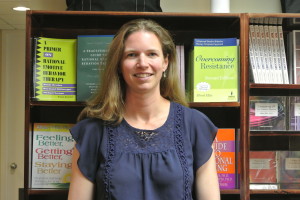by Johna Hansen, L.C.S.W.
My children are obsessed with the Star Wars movies. Recently, I played Star Wars Legos with my children and I noticed that they used the terms “bad guys” and “good guys” when referring to the different characters in play. Almost immediately, I thought this might be a good opportunity to practice what REBT has taught me about unconditional self-acceptance and unconditional acceptance of others.
Therefore, I challenged my children: “Tell me how Darth Vader could actually be seen as a person who makes bad decisions instead of being a completely bad person who never makes any good decisions. Like, what good decisions do you think Darth Vader has made in his life?” My 8-year-old responded, “Before he became Darth Vader, he made a lot of good decisions. He helped his mom and was really good at racing and didn’t cheat like Sebulba. And, even as Darth Vader, he wanted to be kind to Luke”. We continued the conversation by choosing a “good guy” to discuss and I asked, “When have you noticed Luke making bad decisions?” My son responded, “when he goes out into the cold on the planet Hoth or disobeys Yoda.” As REBT has taught me, I explained to my children that no one is either all good or all bad. Talking to my kids helped me practice universal acceptance as well. It made me think that if I can focus on the spectrum of decision making as good and bad rather than the person, I will also be less disturbed.
A few days later, I overheard my 8-year-old say to my 6-year-old, “No, no he’s not a bad guy, he’s a guy who makes bad decisions.” Although my kids may not completely understand the difference between a person who makes bad decisions and a bad person yet, my hope is that the repetition may eventually help them think healthier thoughts about themselves and others.

